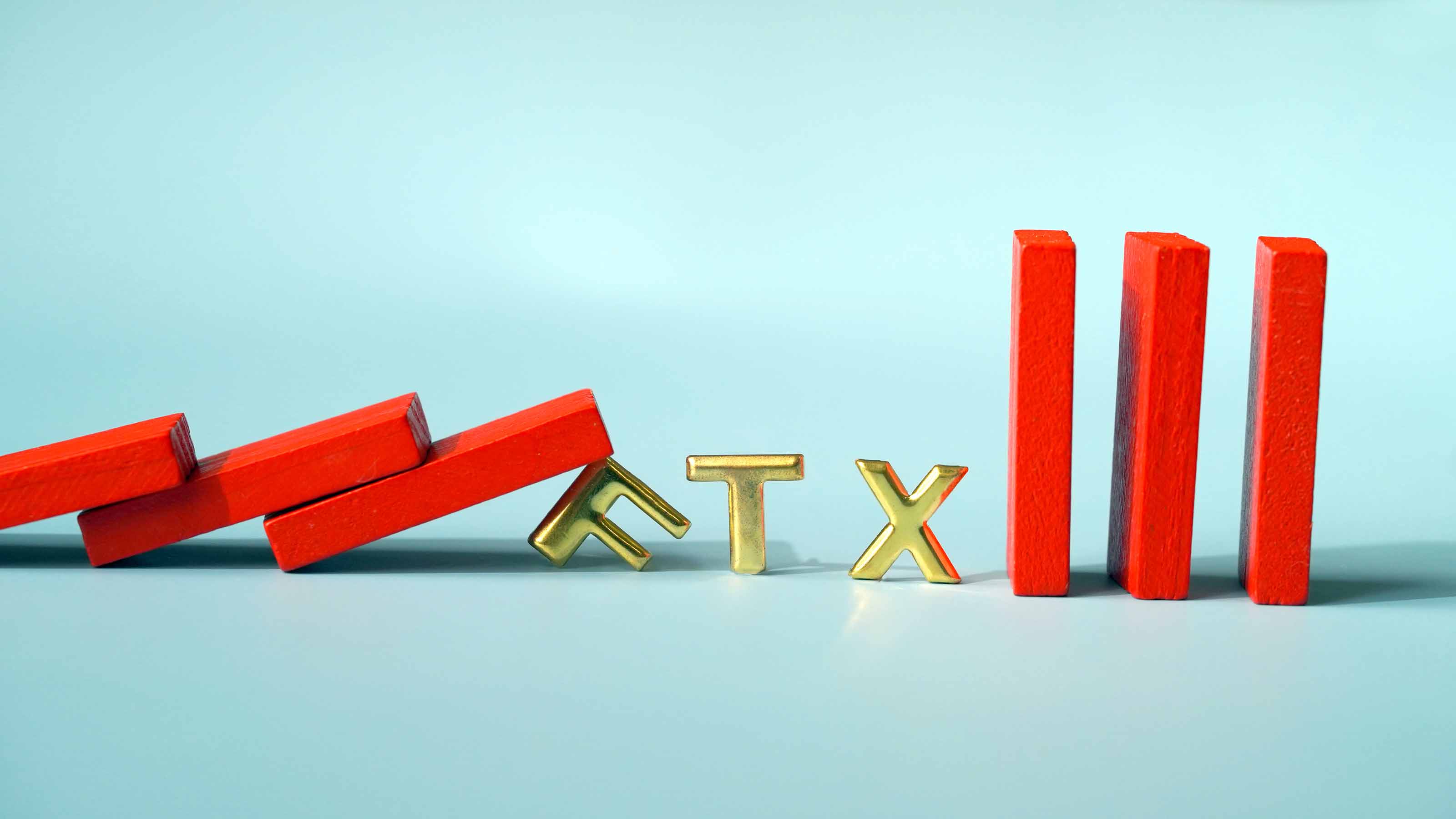What’s Next for Cryptocurrency After the Collapse of FTX?
Is the cryptocurrency bubble bursting now, or does crypto still have a viable future?


Profit and prosper with the best of Kiplinger's advice on investing, taxes, retirement, personal finance and much more. Delivered daily. Enter your email in the box and click Sign Me Up.
You are now subscribed
Your newsletter sign-up was successful
Want to add more newsletters?

Delivered daily
Kiplinger Today
Profit and prosper with the best of Kiplinger's advice on investing, taxes, retirement, personal finance and much more delivered daily. Smart money moves start here.

Sent five days a week
Kiplinger A Step Ahead
Get practical help to make better financial decisions in your everyday life, from spending to savings on top deals.

Delivered daily
Kiplinger Closing Bell
Get today's biggest financial and investing headlines delivered to your inbox every day the U.S. stock market is open.

Sent twice a week
Kiplinger Adviser Intel
Financial pros across the country share best practices and fresh tactics to preserve and grow your wealth.

Delivered weekly
Kiplinger Tax Tips
Trim your federal and state tax bills with practical tax-planning and tax-cutting strategies.

Sent twice a week
Kiplinger Retirement Tips
Your twice-a-week guide to planning and enjoying a financially secure and richly rewarding retirement

Sent bimonthly.
Kiplinger Adviser Angle
Insights for advisers, wealth managers and other financial professionals.

Sent twice a week
Kiplinger Investing Weekly
Your twice-a-week roundup of promising stocks, funds, companies and industries you should consider, ones you should avoid, and why.

Sent weekly for six weeks
Kiplinger Invest for Retirement
Your step-by-step six-part series on how to invest for retirement, from devising a successful strategy to exactly which investments to choose.
A wave of bankruptcies in the cryptocurrency industry have raised concerns about the future of digital assets in general, and whether the industry will make it through this market crash.
First, consider the breadth of the carnage: The list of bankruptcies in the cryptocurrency market related to liquidity problems has grown substantially this year. To date, Three Arrows Capital, Alameda Research, Voyager Digital, FTX, Genesis BlockFi and Celsius Network have paused customer withdrawals or filed for bankruptcy after being unable to continue operations.
FTX, once among the world’s largest crypto exchanges, collapsed after a shortfall of assets in its balance sheet. Rumors that the exchange might have been insufficiently liquid led to customers pulling out $650 million in assets on November 7. This led to the revelation that FTX was tapping into customer accounts to fund risky bets by affiliated trading firm Alameda Research. The exchange held just $900 million in easily sellable assets against $9 billion in liabilities the day before it collapsed. FTX was a leader in crypto markets and its collapse came as a major surprise that has dented the confidence in digital assets.
From just $107.88 $24.99 for Kiplinger Personal Finance
Become a smarter, better informed investor. Subscribe from just $107.88 $24.99, plus get up to 4 Special Issues

Sign up for Kiplinger’s Free Newsletters
Profit and prosper with the best of expert advice on investing, taxes, retirement, personal finance and more - straight to your e-mail.
Profit and prosper with the best of expert advice - straight to your e-mail.
Holders of crypto have taken huge losses: More than $2 trillion in market cap have disappeared – the toll when you add up the decline in the value of bitcoin, ether and all the other digital currencies since they were at or near their peaks last year.
Most of the recent problems are concentrated around crypto lenders – a corner of the crypto market that boomed over the last couple of years. Just like customers at traditional banks earn interest rates on their savings, crypto users that deposit their digital assets at a crypto lender or digital exchange also earn money. While savings accounts at banks offered meager returns over the past couple of years because of historically low-interest rates, some crypto lenders and exchanges offered much higher returns … often in the double digits, and sometimes as high as 20%.
The realities of unsustainable returns offered by some crypto exchanges and lenders have come to the forefront. Like banks, these crypto firms generate profits from deposits by lending.
Borrowers pay a percentage in fees for the loan, and crypto lenders make a profit on the spread between the interest payments paid to depositors and fees paid by borrowers. Unlike traditional regulated lenders, however, crypto companies aren’t overseen by banking regulators – so there are few rules on the capital they must hold and few restrictions about what they can do with their customers’ digital assets.
The collapse of these crypto lenders so far has also shown how interconnected many of these firms are. FTX lent billions of dollars to affiliated trading arm Alameda Research, money that was used to fund risky bets. BlockFi, a crypto lender, had among its list of borrowers Alameda Research and Three Arrows Capital.
More crypto company failures seem likely. Also, as customers worry about the safety of their digital currency deposits and demand their money back, it may be revealed that other exchanges besides FTX were engaged in sketchy trading using depositors’ funds.
Who is most exposed to the crypto fallout?
Banks appear relatively safe, fortunately. Combined, they hold about $9 billion in crypto. Regulators have been warning them for years now to be careful about investing in the asset class, and it appears that banks listened. A surprising number of retail investors own crypto and face some losses. But that exposure, while widespread, looks fairly shallow. About 10% of households in both the U.S. and Europe own some cryptocurrency. In the U.S., the average holding is worth $1,000. Most European investors own less than $5,000.
The real bag holders are venture capital firms, which have wagered heavily on the crypto industry. Of the roughly 10,000 companies tied to the crypto business, only a couple of hundred of them are publicly traded. Most of the rest have been bankrolled by venture capitalists, who now face sizable (and in some cases near-total) losses.
So, is this the end for a once-booming industry?
Not quite. Some of the major currencies, like bitcoin and ether, look likely to endure. Bitcoin, for example, is down 75% from its November 2021 peak but is still four times higher than it was in December 2018. Ether, the number-two token, is up more than 1,000% over the same period. But a major downsizing is clearly underway. Many tokens won’t survive. Many exchanges and crypto lenders won’t either, as their customers opt to keep their crypto in “digital wallets,” which usually don’t allow holders to earn a return on their crypto, but ensure their assets stay safe. The exchanges that survive will have to work hard to convince users that they aren’t the next FTX waiting to crash — by certifying that customer funds are secure and liquid.
Eventually, more regulation by Washington to end the freewheeling nature of the crypto business seems inevitable. To survive, the industry needs this shakeout, to purge the currencies and companies that are pure hype and to consolidate around the few with potential.
Proving their practical value and utility will be a lot harder now ... no more easy riches.
Profit and prosper with the best of Kiplinger's advice on investing, taxes, retirement, personal finance and much more. Delivered daily. Enter your email in the box and click Sign Me Up.

Rodrigo Sermeño covers the financial services, housing, small business, and cryptocurrency industries for The Kiplinger Letter. Before joining Kiplinger in 2014, he worked for several think tanks and non-profit organizations in Washington, D.C., including the New America Foundation, the Streit Council, and the Arca Foundation. Rodrigo graduated from George Mason University with a bachelor's degree in international affairs. He also holds a master's in public policy from George Mason University's Schar School of Policy and Government.
-
 Ask the Tax Editor: Federal Income Tax Deductions
Ask the Tax Editor: Federal Income Tax DeductionsAsk the Editor In this week's Ask the Editor Q&A, Joy Taylor answers questions on federal income tax deductions
-
 States With No-Fault Car Insurance Laws (and How No-Fault Car Insurance Works)
States With No-Fault Car Insurance Laws (and How No-Fault Car Insurance Works)A breakdown of the confusing rules around no-fault car insurance in every state where it exists.
-
 7 Frugal Habits to Keep Even When You're Rich
7 Frugal Habits to Keep Even When You're RichSome frugal habits are worth it, no matter what tax bracket you're in.
-
 Is Crypto Investing Coming to a Credit Union Near You?
Is Crypto Investing Coming to a Credit Union Near You?Credit unions are getting in on crypto investing through partnerships with third-party platforms, but the risks to investors still apply.
-
 The GENIUS, CLARITY, and Anti-CBDC Acts: What Bitcoin Investors Need to Know
The GENIUS, CLARITY, and Anti-CBDC Acts: What Bitcoin Investors Need to KnowMovement on the crypto front at the federal level has the potential to usher in substantial change. Here's what it means for your portfolio.
-
 Cryptocurrency May be Coming to Your 401(k) with Rules Change
Cryptocurrency May be Coming to Your 401(k) with Rules ChangeCrypto may be coming to a 401(k) near you. Financial experts weigh in on whether retirement savers should take the plunge.
-
 Is It Too Late to Invest in Bitcoin?
Is It Too Late to Invest in Bitcoin?Bitcoin has been volatile in recent months, but several analysts believe the cryptocurrency will resume its winning ways. Should investors get in now?
-
 Silvergate Stock Sinks on Liquidation News
Silvergate Stock Sinks on Liquidation NewsSilvergate Capital stock is spiraling after the financial firm said it's shutting down operations at its crypto-friendly subsidiary.
-
 Crypto Hackers Stole a Record $3.8 Billion in 2022. Don't Be Next.
Crypto Hackers Stole a Record $3.8 Billion in 2022. Don't Be Next.Cybercriminals stole a historic amount of crypto last year — a growing trend that puts every cryptocurrency investor at risk. The biggest hacks and how to protect yourself.
-
 How Parents Can Explain to Kids How NFTs Work
How Parents Can Explain to Kids How NFTs WorkNFTs and cryptocurrencies are part of the new digital world that’s here to stay, so parents and their children should learn the ins and outs.
-
 A Guide to Yield Farming's Risk and Rewards
A Guide to Yield Farming's Risk and RewardsEarning cash on crypto using yield farming is popular. It's also risky. Here's what to know (and what to avoid).